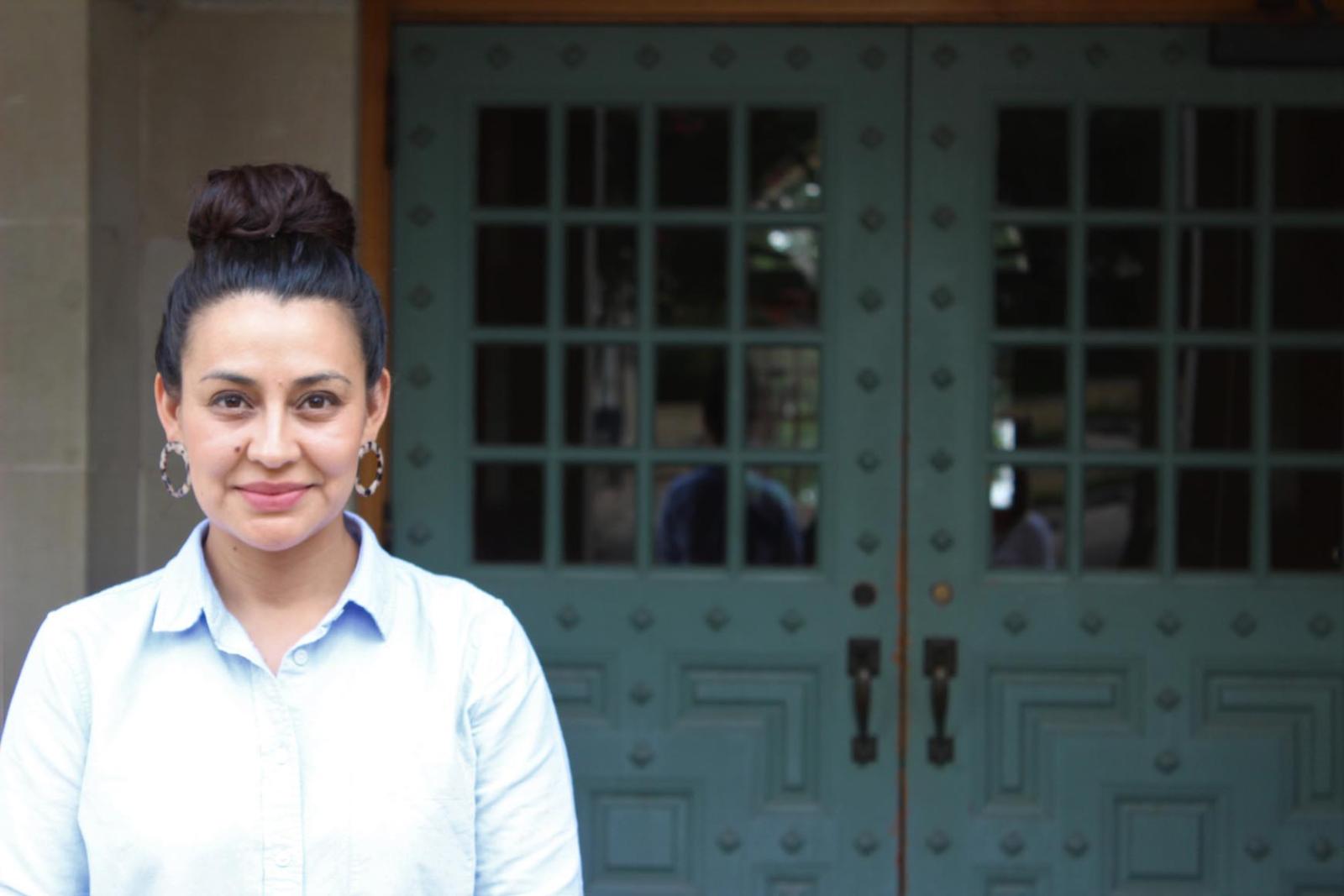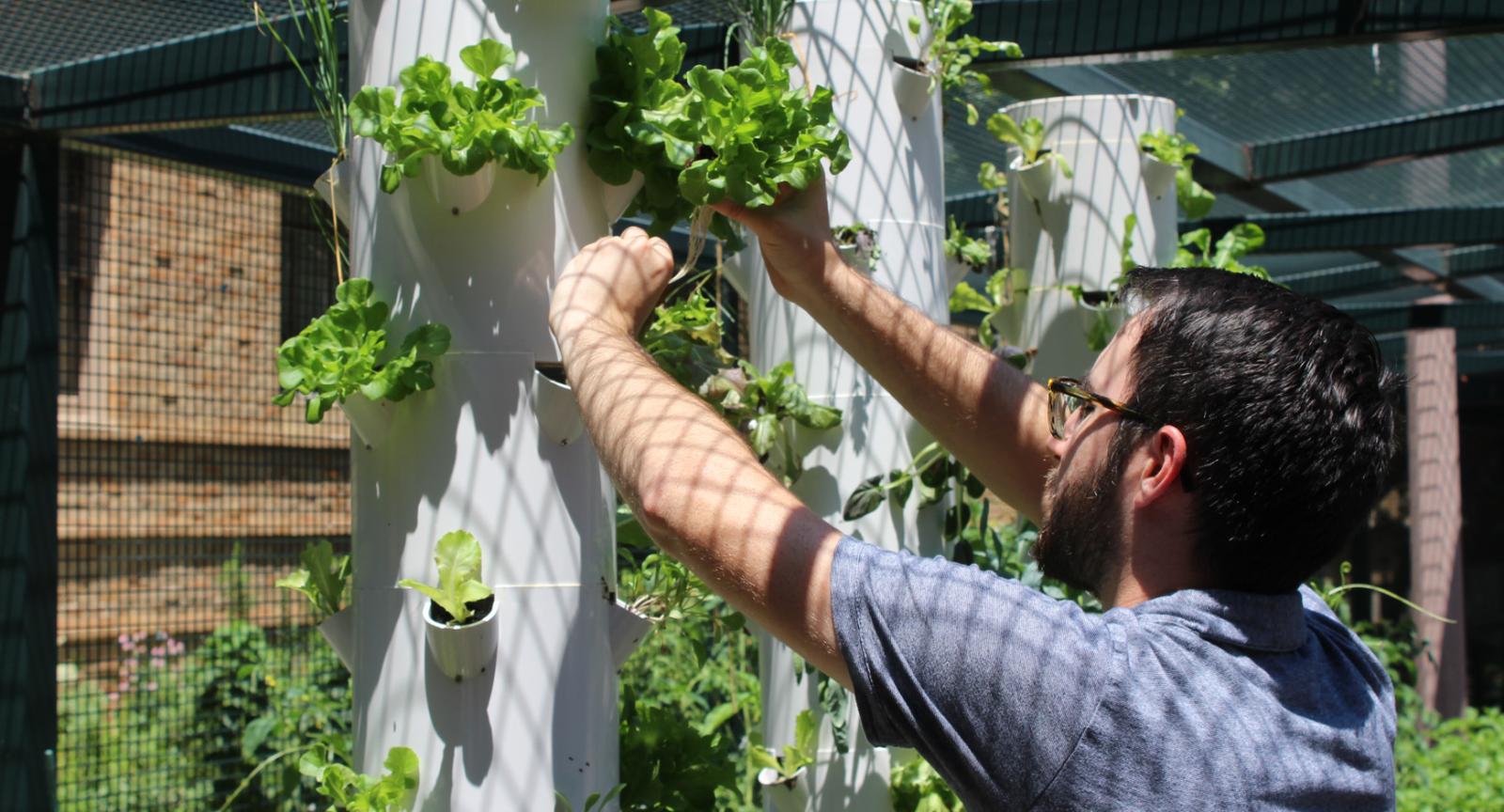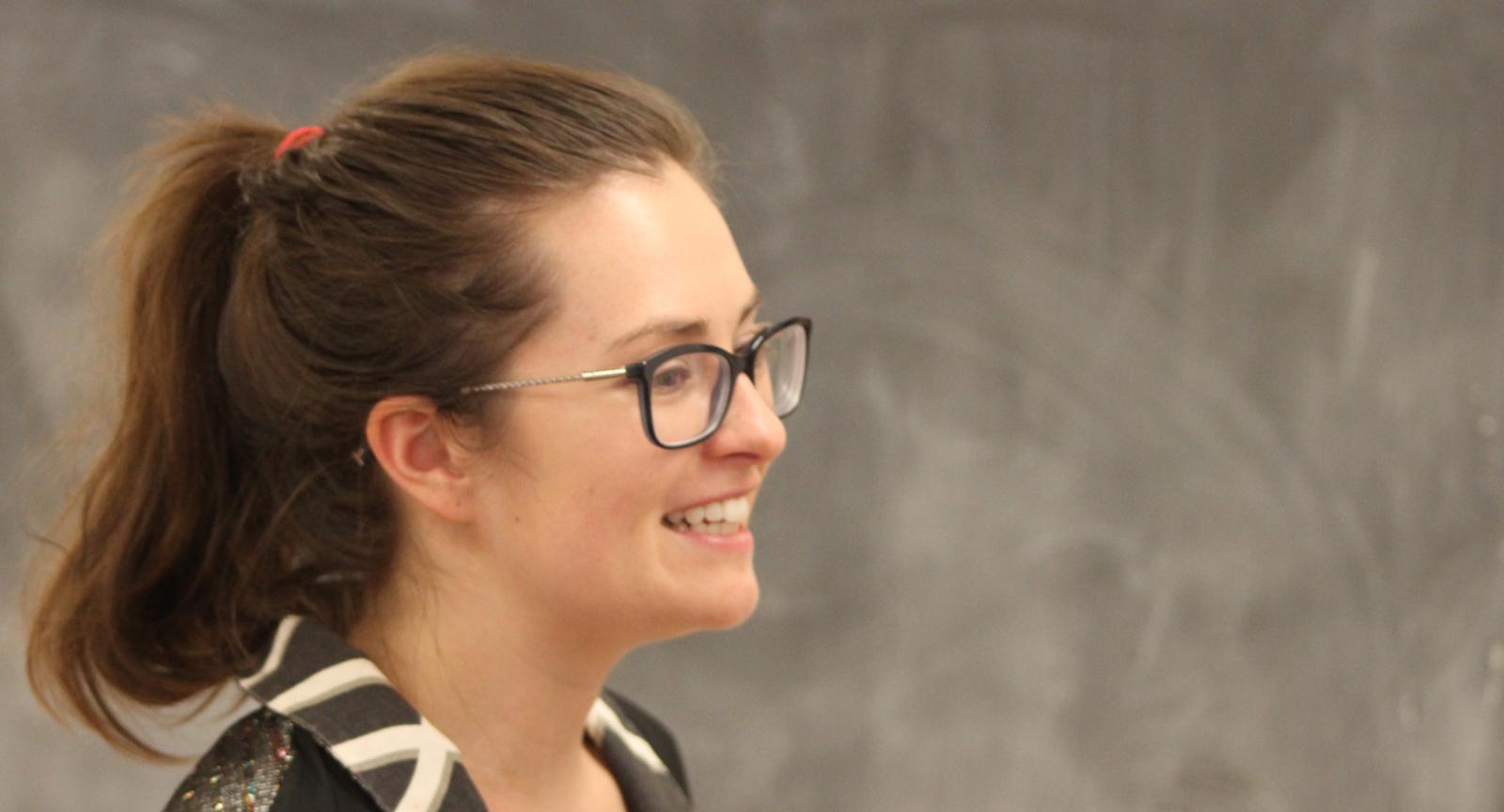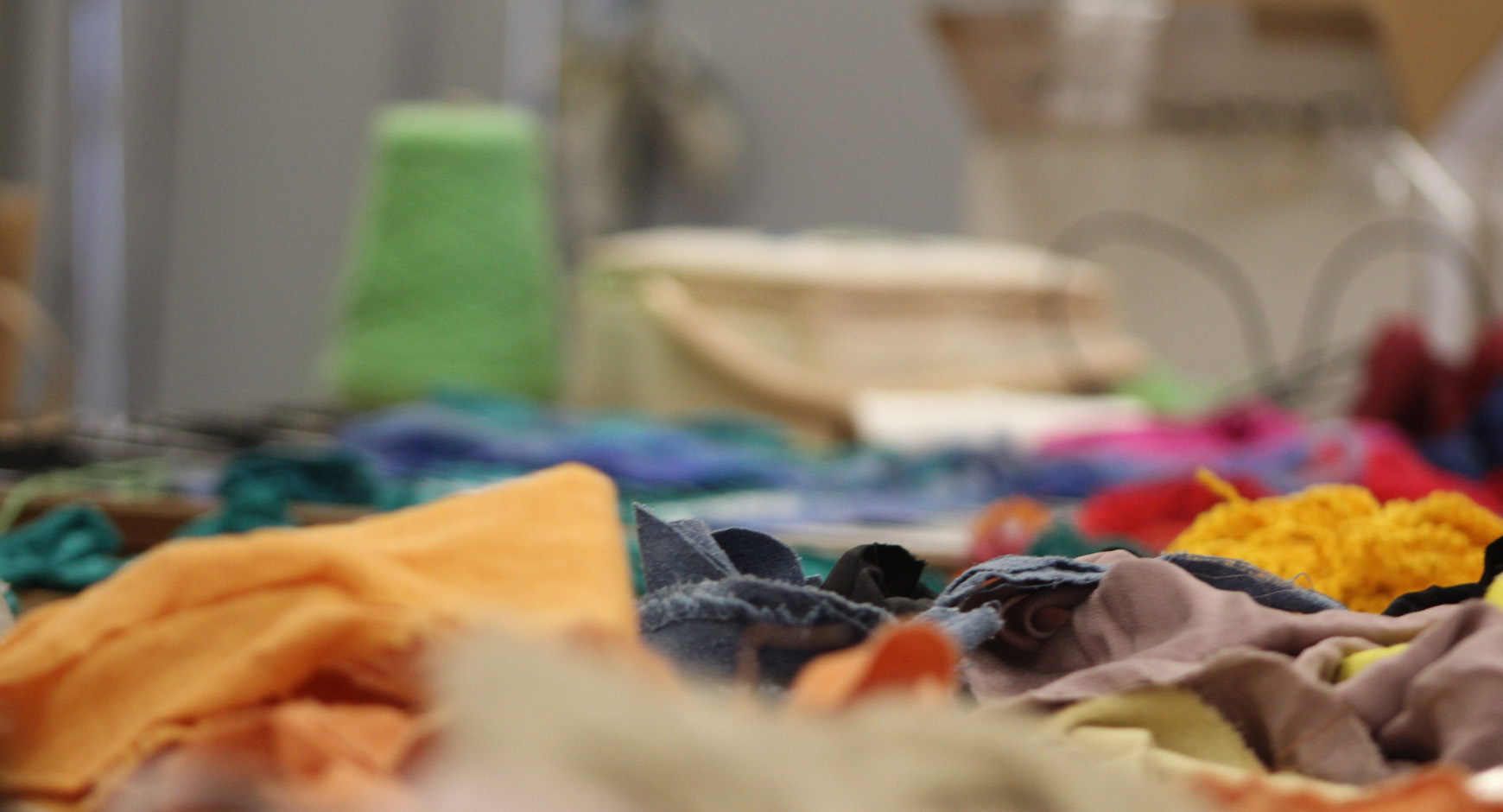An electric-powered landscaping bike, a nest for the Waller Creek monster, envisioning a hyperloop for Central Texas: The Green Fund Committee and the Office of Sustainability (OS) are pleased to announce that these ideas are included in the list of 2019-20 Green Fund grants.
Green Fund is a competitive grant program funded by UT Austin tuition fees to support sustainability-related projects and initiatives proposed by university students, faculty or staff. Since the program’s creation in 2011, over 170 grants have been awarded totaling well over $3 million dollars. This year, a committee of three faculty-staff and six students reviewed nearly 30 projects, ultimately funding 18 for a total amount just under $312,000.
“Green Fund has jump-started major, sustainable change on campus, from water bottle filling stations to research that helps UT innovate in terms of resource conservation,” says Jim Walker, Director of OS. “It is always fascinating to see the ideas that are proposed each year as well as the projects that the committee chooses to fund.”
The 18 projects chosen for this funding cycle include research on resources by UT faculty and graduate students, projects by student organizations, innovative ways to make UT’s food and waste more sustainable. Please read on to learn about this year’s funded applications:
Energy and Water Resources

Dr. Miriam Solis will research the impact of Austin's boil water notice. Photo by Kathryn Gatliff
- UT’s Boiling Point: Findings & Recommendations on Students’ Experience [research], awarded to Dr. Miriam Solis Collins of the School of Architecture, explores how a city-wide notice to boil water (announced October 22, 2018) impacted UT students on or off-campus. Particular focus will be on students who may have been socially or economically vulnerable.
- Ventilation for Energy Efficiency and Improved Environmental Quality in Classrooms and Labs [research], awarded to Dr. Atila Novoselac of Civil, Architectural and Environmental Engineering, aims to identify laboratories and classrooms that are under- or over-ventilated so that areas of improvement for existing ventilation control systems can be pinpointed. The results may help UT’s Energy Stewards when considering ventilation retrofits or technology for new campus classrooms or lab and hopefully save energy and improve the indoor environment for students and staff.
- Biodiesel Team [research], awarded to Dr. Schonna Manning of the College of Natural Sciences, aims to generate liquid fuels by resourcing waste cooking oils (WCOs) from local restaurants in and around campus, as well as bring awareness about the potential uses of WCOs as biodiesel feedstocks to the broader university community. The goal is to produce biodiesel with physical and chemical properties similar to the composition of commercially-purchased diesel used in UT Fleet vehicles and for small equipment like the 2-stroke leaf blowers and lawnmowers.
- Water-Energy Intensity Benchmarking and Predictive Modeling [research], awarded to Dr. Polina Sela of Civil, Architectural and Environmental Engineering, will help meet UT’s long-term sustainability goals by creating coupled water and energy demand models for different types of buildings on campus. Using existing, real-time metering data and machine-learning algorithms, the models may inform strategic management decisions by identifying inefficient buildings, demand forecasting, and anomaly detection.
- On Site Water Treatment for Recycling Hydroponic Wastewater [research], awarded to Heather Rose, graduate student in the Jackson School of Geosciences, looks at water treatment within hydroponic food cultivation methods. Recent improvements make it possible to treat hydroponic wastewater onsite for reuse, but very little is known about what is needed to treat and recycle this wastewater. The project will test hydroponic wastewater for common contaminants, treat this wastewater using commercially available methods (filtration, reverse osmosis and UV lamp) and retest treated water to see if it is fit for non-potable reuse. UT’s sustainability goals include reducing our water conservation and minimization [UT Austin 2016].
Food

Sample of new towers for growing vegetables on campus. Photo by Kathryn Gatliff
- Lettuce Grow Garden Towers was awarded to University Housing and Dining to purchase and service 12 vertical garden towers for growing lettuce and herbs at UT Farm Stand’s Jester gardens.
- Solar Powered Smoothie Cart - New Battery and Blenders was awarded to Engineers for a Sustainable World to replace failing equipment on their successful Solar Powered Smoothie Cart (SPSC). For the last five years, SPSC has operated weekly on campus selling smoothies made by solar power supply.
Transportation
- Electric Landscape Bike and Electric Landscaping Power Tools, awarded to UT’s Landscape Services, will make transportation more sustainable with a completely autonomous, solar-powered E-bike, including tools.
- Expanding Hyperloop Research and Development, awarded to Texas Guadaloop - Hyperloop Engineering at UT Austin, provides materials and supplies for the construction of the Hyperloop Pod and educational outreach.
Waste Reduction
- Saving Money and Saving Plastic: Recycling Biologically Contaminated Pipette Tips, awarded to the Division of Molecular Pharmaceutics and Drug Delivery, College of Pharmacy, will implement a pilot study verifying the efficiency of two methods of washing and sterilization on plastic pipette tips used for experiments involving bacteriophage.

Ashlee Bushee working on newly funded exhibition. Photo by Kathryn Gatliff
- Assessing the Impact of an Educational Art Exhibition, Bought Local Impacted Global, on the Apparel Consumption Behavior of University Students [research] was awarded to Ashlee Bushee, graduate student in the College of Education, to create five exhibits on campus that inform students about the social and environmental impact of apparel production. By taking viewers from Texas cotton farms to overseas where the cotton is transformed into apparel and then shipped back to Texas for purchase and, later, discarding, these the exhibits seek to increase student knowledge of the environmental and social justice issues in the apparel supply chain and determine if there is a resulting behavior change after viewing the exhibits.
- Composting in Liberal Arts Student Division was awarded to the College of Liberal Arts Student Division in an effort to decrease landfill waste by supporting composting in Gebauer.
- Composting, Wellness & Reuse in the CRC, awarded to Children's Research Center in the Psychology Department, will tackle waste in the workplace by expanding the composting initiative and provide reusable dishware in each lab. Plants will also be purchased to promote health and wellness.
- UT Austin Recycling and Compost Signage, awarded to Resource Recovery, the Office of Sustainability, Housing and Dining, and Athletics, will assist with the design and implementation of a unified branding strategy to help achieve UT’s zero waste goals. The branding will be incorporated into signage, messaging, and outreach materials with the goal of educating the entire UT campus about how to properly recycle and compost.
Sustainability Outreach
- UHD EcoReps, awarded to University Housing and Dining, will fund a position to oversee the EcoReps program for three years. With 8,000 residents living in the residence halls, there is an exciting opportunity to implement an EcoReps program, a tested model of integrating sustainability into campus life.
- Waller Creek Monster Habitat Installation, awarded to the Department of Theatre and Dance, funds the installation and design of the Waller Creek Monster Habitat, an interactive, theatrical experience that will tell the story of the Waller Creek revitalization and transformation. The Waller Creek Monster Habitat will be designed and built by UT students with mentorship from UT faculty from multiple departments, and the installation will be a gateway into the Waller Creek Conservancy Creek Show in November 2019 and serve as an anchor attraction and theatrical event for UT’s 2020 Earth Day Celebration.
- Environmental Justice Committee Grant, awarded to the Campus Environmental Center, expands efforts started in Fall 2018 to add a centralized approach to environmental justice efforts to UT and to improve the ways in which environmental justice frameworks work towards successful equitable and activist work on campus.
- Enabling a Circular Economy of Plastics at the University of Texas is awarded to Precious Plastics Texas to build a line of machines to recycle plastic into useful products and to fight plastic pollution by making recycling more personal and accessible to students. The machines are based on open-source designs developed by Precious Plastic, a worldwide collaborative project founded in Netherlands in 2013.
Compiled by Kristin Phillips, Communications Coordinator, Office of Sustainability

